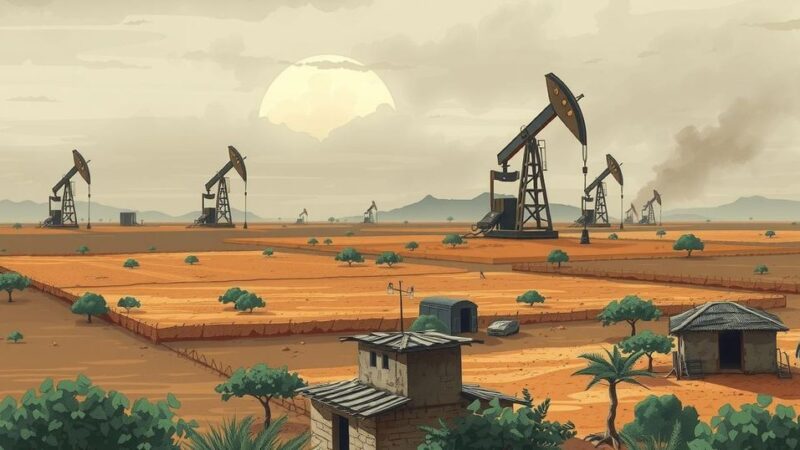Fresh fighting has erupted in eastern DRC, with M23 rebels attacking Congolese army positions. Accusations of Rwandan support for the M23 complicate the conflict, which has a long history and recent escalation amid calls for ceasefire from African leaders. The M23 has captured significant territory, exacerbating the humanitarian crisis in the region.
Fighting has once again erupted in eastern Democratic Republic of Congo (DRC), just three days after African leaders’ calls for a ceasefire. M23 militants initiated attacks on Congolese army outposts in South Kivu province, leading to rising tensions. The DRC government has labeled the M23 as a terrorist organization, while the United Nations and the United States recognize it as an armed rebel group. Accusations of support for the M23 by Rwanda have been denied by Rwandan authorities.
This resurgence of violence follows an appeal from southern and eastern African leaders to strategize for an “unconditional” ceasefire, amidst a conflict that has already resulted in significant loss of life and mass displacement. In recent months, the M23 has aggressively captured territory in the vitally rich eastern DRC, having resumed hostilities in late 2021, amidst a backdrop of long-standing national strife.
The M23’s recent advances began after seizing control of Goma, the capital of North Kivu province, at the end of the previous month. New clashes were reported near Ihusi village, approximately 70 kilometers from Bukavu’s main city, with local sources noting the sound of heavy artillery. The Congolese military utilizes Kavumu airport for troop reinforcements, and its proximity raises alarm for potential escalations.
In Bukavu, residents have been preparing for possible attacks; schools and banks shuttered and many fled the city as fears of an M23 offensive mounted. Surrendering Bukavu would grant the M23 and Rwandan forces control over Lake Kivu, intensifying concerns regarding regional stability. Additionally, around 300 Congolese soldiers are presently on trial for severe offenses, underscoring the tumult within the military.
The M23’s goal appears focused on dismantling the existing government and pursuing territorial control. Global security sources report that Burundian troops have intervened to repel M23 advances, with an estimated 10,000 Burundian soldiers deployed to South Kivu. Recently, an additional battalion from Burundi has been sent to fortify the defense against M23 incursions.
In Goma, the humanitarian situation is deteriorating, with substantial portions lacking access to clean water, pushing residents to draw from Lake Kivu. The United Nations has reported a spike in cholera cases particularly among displaced populations. The city’s airport remains closed, complicating efforts to deliver much-needed humanitarian aid.
Upcoming discussions regarding the crisis are scheduled to take place at an African Union meeting in Addis Ababa, Ethiopia. The intensifying conflict has invited heightened international calls for de-escalation due to concerns about potential ramifications for regional stability. Yet, diplomatic measures have largely failed to quell the strife that has persisted for over three years.
The DRC government has proposed “targeted sanctions” against Rwanda to little effect, citing the latter’s interest in exploiting the DRC’s rich natural resources. In response, Rwanda argues it seeks to neutralize armed groups it perceives as threats to national security. Adding to the DRC’s challenges, a militia attack from the Lendu ethnic group in Ituri province resulted in 51 fatalities, emphasizing the ongoing complexities of internal conflicts that have afflicted DRC for over three decades.
In summary, the ongoing conflict in eastern Democratic Republic of Congo presents a significant humanitarian and security crisis. Recent militant resurgence and attacks by the M23 underline the challenges faced by the Congolese government and international community in achieving lasting peace. Despite calls for a ceasefire and international intervention, the prospects for resolution remain uncertain. The region continues to grapple with extensive violence, humanitarian needs, and historical grievances, necessitating sustained diplomatic efforts and support.
Original Source: www.voanews.com






